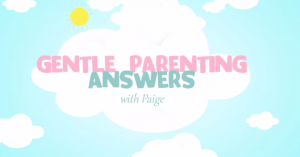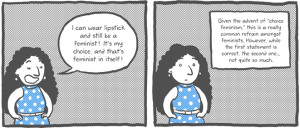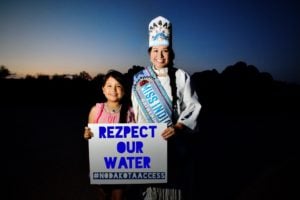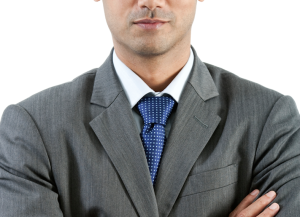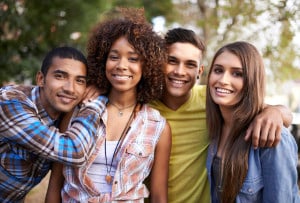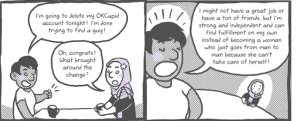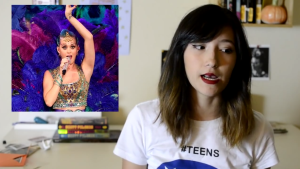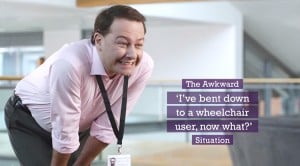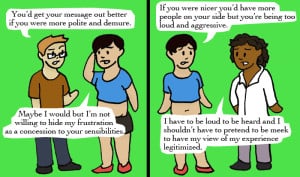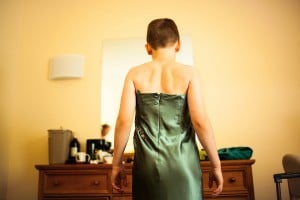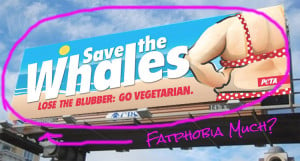Hey y’all. This is another video I’m doing in a series with Everyday Feminism, which, as you know, is a website dedicated to helping you break down and stand up to everyday oppression. And in this video, I want to talk about the problem I see with positioning Canada as a utopia.
And the terrifying political reality in the US right now has led many people to idealize Canada more than I’ve ever seen before. And I’m a Canadian, we do it a lot. Canada’s immigration website even crashed when Trump was elected. And I can totally understand why!
I felt – and continue to feel – scared for my American friends and family in Trump’s America. And things have only gotten worse since the election.
With the immigration ban from muslim-majority countries (that Trump doesn’t have business in) to his refusal to condemn the rise in violence, racism, and anti-semitism of his supporters, Trump has effectively made America a terrifying place to live for millions of people.
And many of these people look to Canada as a beacon of utopian light – a place of safety and diversity, with a liberal and feminist leader. And sure, Trudeau – our prime minister – is a huge improvement from our last prime minister, but he has not single-handedly fixed Canada’s problems. And there are problems.
And you might be thinking, well, the problems in Canada are bad but there’s no harm in saying that it’s better there than in America! And, for many people, that’s probably true.
However, the problem I see with positioning Canada as a perfect utopian country is that it not only ignores but covers up the systemic human rights abuses that are going on here, and renders them less important to the public’s collective consciousness.
Not just America’s consciousness but Canadians’ consciousness, too.
So, in this video I want to talk about a few of the issues that we still need to be addressing in Canada as Canadians. We shouldn’t be gloating about our handsome prime-minister calling himself a feminist when the people indigenous to this land are still oppressed and in danger.
And we shouldn’t feel superior to Americans when there has already been more than one attack on Muslim communities in Canada since Trump has been elected. We are not immune to the rise of hatred – and we never have been.
So, what am I talking about exactly? Well, let’s consider some of the facts:
1. Canada’s Legacy of Genocide and Oppression
First, despite the fact that Aboriginal people in Canada now only represent 4% of the total Canadian population, Aboriginal women and girls represent 10% of all female homicides in Canada.
Aboriginal men are also at a greater risk of violence – seven times more likely to be homicide victims compared to non-aboriginal males.
Aboriginal women are three times more likely to be killed by a stranger than non-aboriginal women, nearly half of the murder cases of Aboriginal women and girls remain unsolved, whereas the national clearance rate for homicides is 84%.
These are systemic issues. Canada has a long legacy of human rights abuses and cultural genocide against the First Nation communities in Canada. What makes this worse is that Canada wants so badly to maintain its utopian status, that our dark history and our unjust present is not taught.
I was never taught in school about the residential school system that ran from 1876 to 1996 and killed thousands of children, among other atrocities. It’s no doubt uncomfortable for white settlers to confront our legacy of genocide and oppression in Canada, but it’s absolutely necessary.
And it’s not simply in the past either.
Aboriginal Canadians deserve more than for the people who took their land from them, tried to eliminate them and still refuse to acknowledge the effects of our actions on them, to then turn around and say “Hey look at our great Canada is, everybody! Don’t you wish you could live in our perfect country!”
2. Canada Isn’t Free from Anti-Black Violence
Moving on, Canada isn’t free from anti-Black violence and police brutality, either.
Instead of simply saying, “you know, well, our police aren’t nearly as racist as American police!” we should be listening to Black Canadians when they talk about the disproportionate police surveillance, racial profiling, and violence that they experience.
We should be spending more time looking into the institutional racism against Black people and other marginalized groups in Canada.
3. Mass Shootings
We’ve also had our share of mass shootings, too, unfortunately.
In 1989, a 25-year-old man entered a classroom at Polytechnique university in Montreal (where I live), claimed he was “fighting feminism,” called the women in the room “a bunch of feminists,” then proceeded to shoot all nine women in the room before moving on to other classrooms and cafeterias.
He shot 28 people in total, killing 14 women.
And this kind of violence isn’t just in the past either: On January 29th of this year, less than a month ago, a lone gunman opened fire at a mosque in Quebec City, killing six people and injuring nineteen others.
We might not have the same level of gun violence as America. It might not happen as often, but considering that our gun laws are much stricter here, these things are still happening at an alarming rate. And it’s only getting worse since Trump was elected.
4. Hate Crimes
Just last week there was a protest outside a mosque in downtown Toronto, maybe it was a couple weeks ago now, an incredibly diverse city as Toronto, there were protestors shouting about banning Islam.
And according to Toronto police statistics, Jews are the group most often targeted by hate crimes, followed by, not surprisingly, the LGBTQ community and Muslims.
***
In other words, Canada has its share of problems. We can and we should be welcoming to those who seek refuge here from danger down south, and show compassion for the visceral fear felt by millions of people whose entire lives have been turned upside down by this election and post-election policy.
But we shouldn’t forget that Canada has its own problems to deal with, as well. And we can’t ignore this reality because when we do, we cover it up. We make it less talked about.
We should continue to talk about what’s happening in America, but Canadians also have a responsibility to think critically about the country that we live in and shape.
We need to listen to our Indigenous communities still dealing with the effects of residential schools and colonialism, to our marginalized communities who are under attack right now. We need to do that before we tell anyone how perfect Canada is.
You know, I feel really lucky that I don’t live in America right now. In a lot of ways, Canada has been very good to me. But I know that plenty of people do not share that feeling.
Idealizing Canada does nothing to correct the injustices that are still happening.
As for Americans that idealize Canada, well, from what I’ve seen, many of the people joking about moving to Canada are the ones who are least effected by oppression.
White, middle class, educated people are often the ones saying, “wow, Canada knows what’s up” while sharing a picture of Justin Trudeau doing a yoga pose on a desk. Yes, I’ve seen that picture. And it’s easy for people with our privilege to overlook the real problems because they don’t directly affect us.
But the point is that just because Canada is not threatening your basic human rights doesn’t make it a utopia. The more we paint that picture, the less willing and able we are to address the problems that are at this country’s roots.
I hope this was helpful. I will put all of those statistics, and studies, and, you know, other things to read that I cited in the description box. And I’m looking forward to your comments. Bye y’all.





